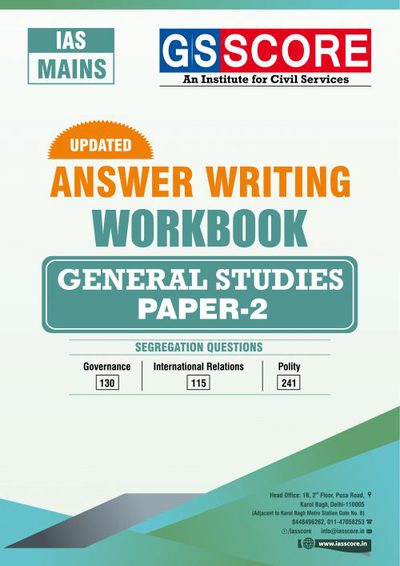|
With the increasing unpredictability of the types of questions being asked in the UPSC IAS examination, it becomes very important for IAS aspirants to begin and continue to practice answer writing. This will prove to be very helpful and fruitful while preparing for the most coveted civil services. The workbooks are designed in a way that enables the students to understand their weak areas and improve upon them.
Thus, the GS SCORE Workbook for GS II is essential for the students for subjects such as:
Indian Polity;
Governance;
International Relations
The Workbooks have been designed in a way that follows the trends of the UPSC IAS Mains examination giving the aspirants only valuable and holistic practice of answer writing. Each set of the Workbook covers significant portions of the subject in 10-11 questions.
The GS SCORE workbooks consist of questions from the following topics:
Indian polity
Total 25 sets
Covering Indian Constitution- historical underpinnings, evolution, features, amendments, significant provisions and basic structure.
Functions and responsibilities of the Union and the States, issues and challenges pertaining to the federal structure, devolution of powers and finances up to local levels and challenges therein.
Separation of powers between various organs dispute redressal mechanisms and institutions.
Comparison of the Indian constitutional scheme with that of other countries
Parliament and State Legislatures – structure, functioning, conduct of business, powers and privileges and issues arising out of these.
Structure, organization and functioning of the Executive and the Judiciary Ministries and
Departments of the Government; pressure groups and formal/informal associations and their role in the Polity.
Salient features of the Representation of People’s Act
Appointment to various Constitutional posts, powers, functions and responsibilities of various Constitutional Bodies
Governance
Total 13 sets
Important aspects of governance, transparency and accountability, e-governance- applications, models, successes, limitations, and potential; citizens charters, transparency & accountability and institutional and other measures.
Role of civil services in a democracy.
|



